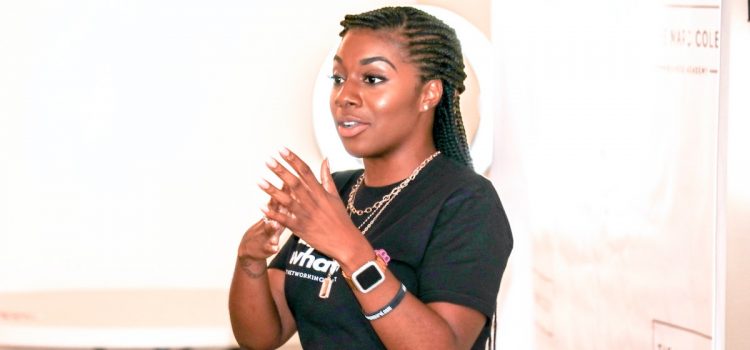

This article is an excerpt from the Shortform book guide to "The Bezos Blueprint" by Carmine Gallo. Shortform has the world's best summaries and analyses of books you should be reading.
Like this article? Sign up for a free trial here.
What’s the fastest way to become a better writer? How might you leverage your natural strengths to improve your presentations?
Jeff Bezos, now an excellent communicator, improved his skills over time. In The Bezos Blueprint, Carmine Gallo draws inspiration from Bezos and argues that anyone can improve their communication skills. He offers two recommendations: read widely and practice your presentations.
Keep reading to learn how to become a better communicator through these strategies.
How to Become a Better Communicator
Although Gallo suggests that Bezos is a naturally gifted communicator, he also points out that Bezos didn’t start off as skilled as he is now—instead, he honed his skills through years of experience and practice. For example, Gallo compares Bezos’s earlier shareholder letters to his later ones and finds that the later work is simpler and clearer. Similarly, he analyzes three Bezos speeches ranging from 1998 to 2019 to show how Bezos polished his message (from rambling to concise) and his delivery (from fumbling to confident) over the years.
(Shortform note: It’s easy to think that some people (like Bezos) are just naturally good at writing and speaking while other people aren’t. However, in Mindset, Carol S. Dweck warns that this belief, which she calls a fixed mindset, can limit your growth by causing you to give up instead of putting in the hard work needed to hone your craft—after all, why work hard when you believe you can’t improve? On the other hand, if you have a growth mindset, you’ll view your natural abilities as a starting point and seek ways to get better—such as by emulating people more advanced than you as Gallo recommends. Bezos’s evolving shareholder letters and speeches indicate he has a growth mindset, which has paved the way for his continued improvement.)
Just like Bezos, you can learn how to become a better communicator. Gallo recommends two approaches: reading widely and practicing your presentations. Let’s take a look at each approach.
Read Widely
Gallo argues that the fastest way to become a better writer is to read as much as you can. He notes that reading widely will help you not only to become a better writer but also a better leader, and he lists several reasons behind this.
Reading allows you to experience different situations and perspectives, and to see how other people (real or fictional) have dealt with problems you might also face.
(Shortform note: Neuroscience research corroborates this benefit in a surprisingly literal way: Studies have shown that words with strong scent associations activate the parts of your brain that process smell. So in a sense, when you read a story, you actually experience whatever you’re reading about.
Reading equips you with facts and stories that might inform or illustrate your ideas later.
(Shortform note: In Talk Like TED, Gallo points out that what you learn from your reading can improve your public speaking, too: Listeners want to hear something new, and the more widely you read, the more likely you are to come across an interesting anecdote that’s not widely known.
Reading shows you different ways to organize and express thoughts—critical skills for crafting a compelling narrative.
(Shortform note: Similarly, reading can improve your persuasive and critical thinking skills by teaching you to dissect the rhetoric that other people use to make their cases.)
Gallo recommends that, to get the most out of your reading, you should take notes and discuss your reading with others.
(Shortform note: Gallo’s advice essentially recommends that you go beyond passively consuming a text and instead actively interact with its messages. Mortimer J. Adler and Charles Van Doren have similar advice in How to Read a Book, where they propose that to gain a full understanding of a subject, you use a process of “syntopical,” or comparative reading. This involves compiling a bibliography on a topic, reading the most relevant passages in each book, taking notes that rephrase each author’s arguments in a common set of terms, and getting a sense of how each author answers the major questions about the topic—thereby interacting with the text as Gallo advises.)
Practice Your Presentations
Likewise, Gallo offers several pieces of advice for improving your presentation skills:
- Learn your natural strengths and emphasize them. Do you have a good sense of humor? A strong, dynamic voice? An ability to express ideas clearly and simply? A gift for compelling metaphors and comparisons? Make the most of whatever natural gifts you have.
- Craft a gripping message that’s simple, gets to the point, and tells a story. The better your message, the less you have to rely on your natural skills to make your presentation compelling.
- Present regularly, and rehearse your presentations to get more comfortable and refine your delivery.
- Record yourself on video to get a sense of your strengths and weaknesses from the audience’s perspective. Watching the recording will help you catch issues like too many filler words (“um,” “like,” “y’know”) and hard-to-read slides.
(Shortform note: Fear of public speaking is incredibly common, and if you want to become a better presenter, odds are you’ll have to deal with that fear. Experts recommend that you tackle the fear proactively by getting comfortable with your emotions, learning how to release excess anxiety, and visualizing what it will be like to stand in front of an audience. Gallo’s recommendations that you lean into your natural strengths, craft a compelling message, and rehearse can be seen, then, not only as methods to improve your skills but also as ways to reassure yourself of your skills and thus allay your fears—which, in turn, will improve your skills.)

———End of Preview———
Like what you just read? Read the rest of the world's best book summary and analysis of Carmine Gallo's "The Bezos Blueprint" at Shortform.
Here's what you'll find in our full The Bezos Blueprint summary:
- How to improve your communication by using Jeff Bezos's principles
- Why you should start a project with a press release
- Why you should ban PowerPoint in favor of storytelling






